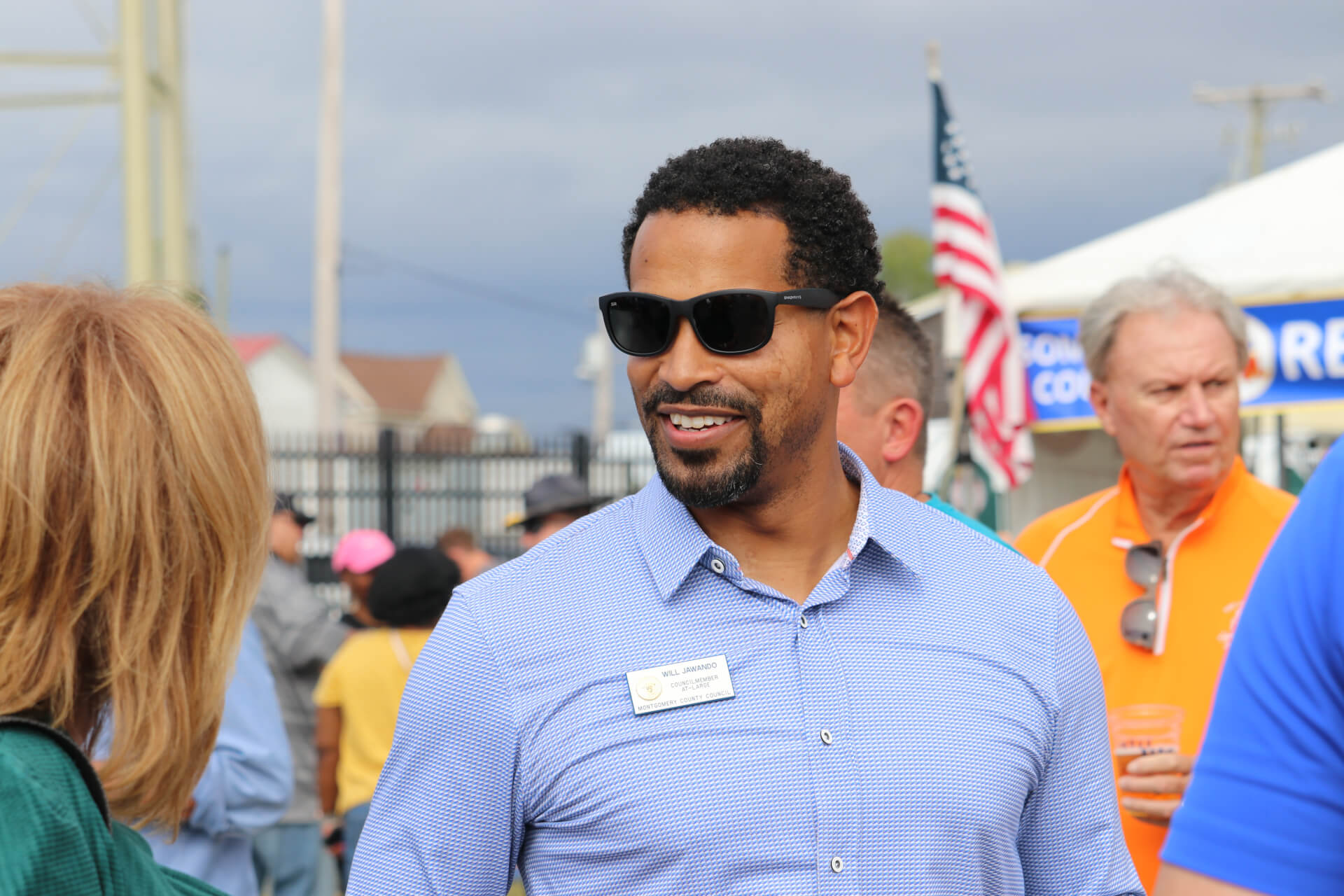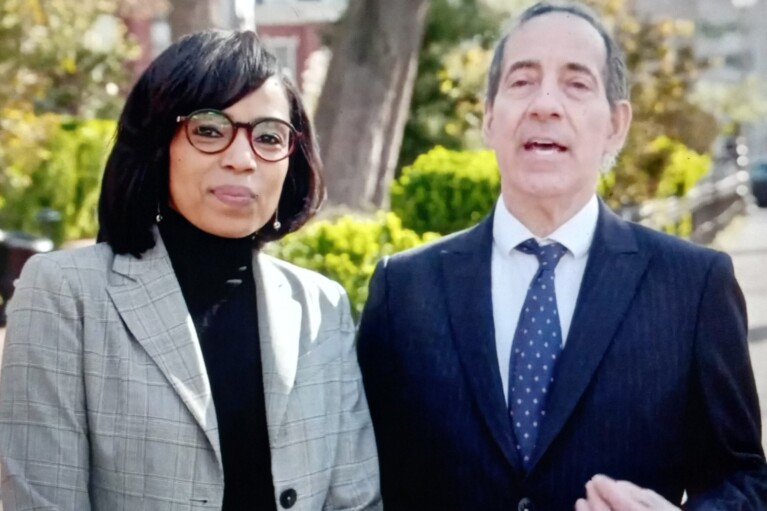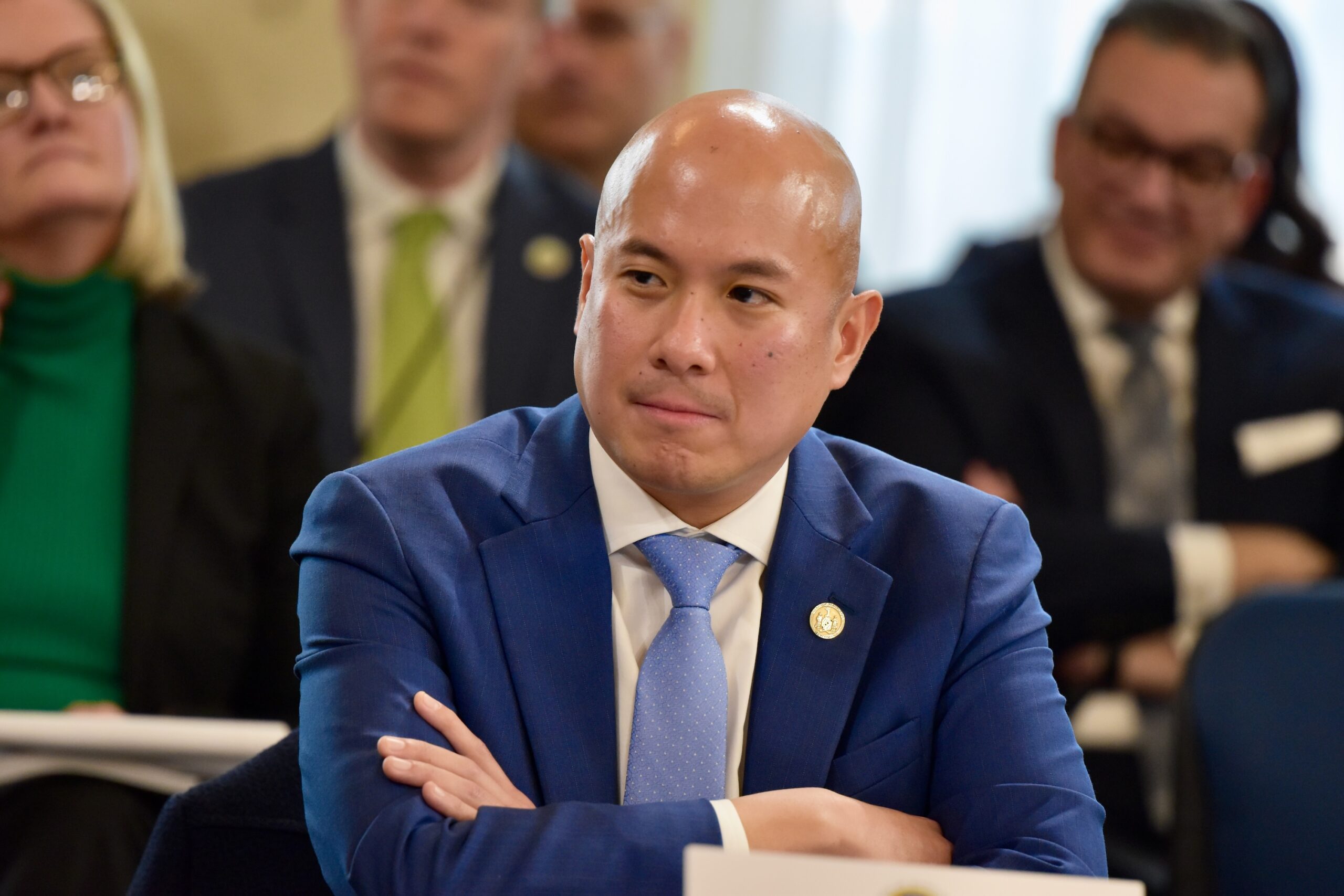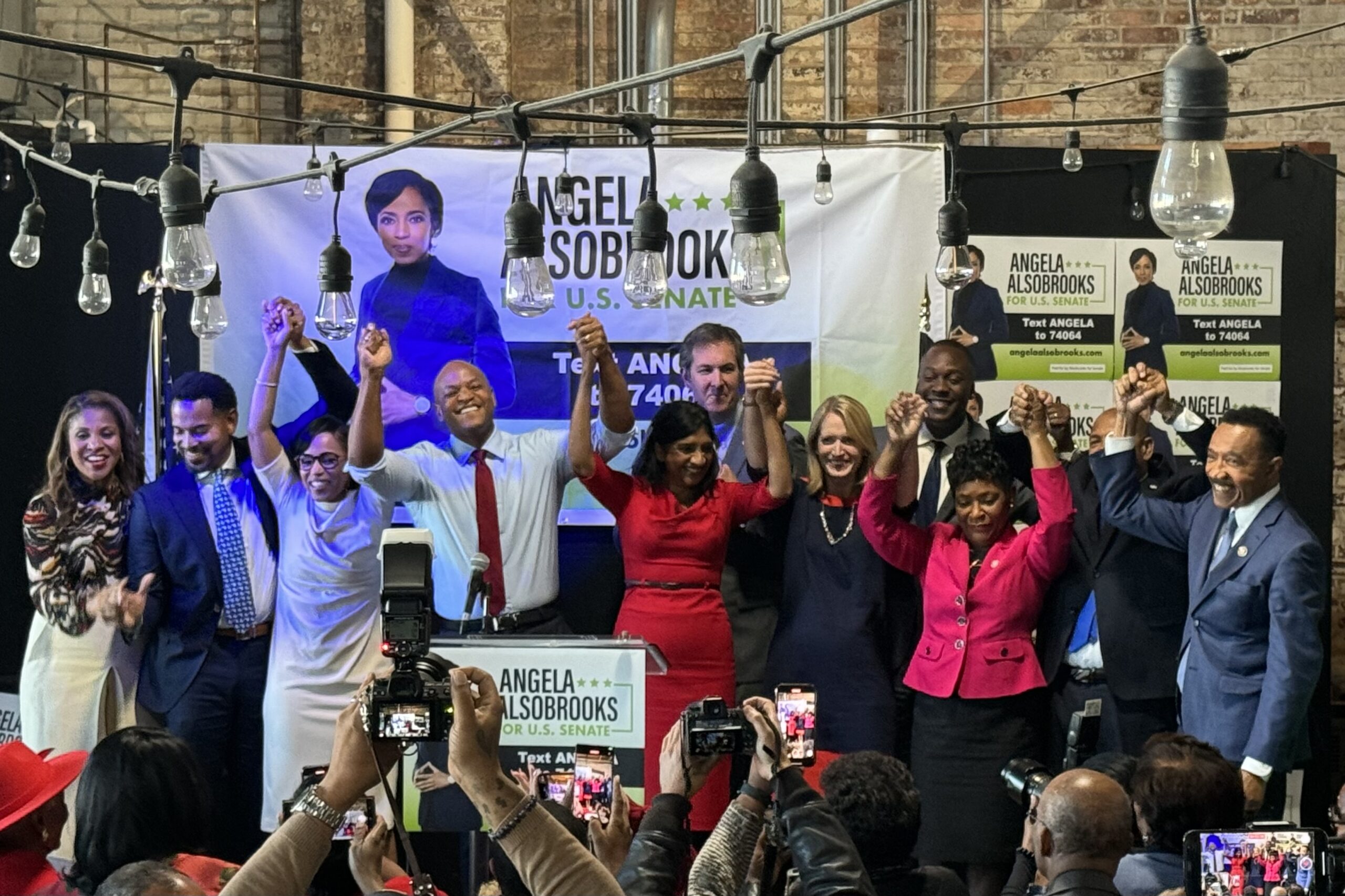
When I first heard that Montgomery County Councilmember Will Jawando (D) was writing an autobiography, with the title “My Seven Black Fathers,” the cynic in me raced to a couple of conclusions.
There was something a little too Obamaesque about the title to make me think this was anything but a calculated political document by a very ambitious politician whose own history, with a white mother from Kansas, an African father and a Black wife named Michele, aligns very neatly with the 44th president’s.
I was wrong.
Jawando’s book, which came out last month (the subtitle is “A Young Activist’s Memoir of Race, Family, and the Mentors Who Made Him Whole”), is a deep, genuine, and thought-provoking work. It tells the reader a lot about Jawando himself, yes. But it’s also a story about the Washington, D.C., area in a particular time, a look at the disparities between growing up Black and growing up white in suburbia (even in a liberal enclave like Montgomery County), and a broader and necessary examination of the importance mentors play in the lives of young Black people.
Jawando, for the uninitiated, is one of the biggest rising stars in Maryland politics — a combination of brains, good looks, political pedigree, good works in and out of politics, boundless energy, and compelling life story. It’s been clear for those who have known him for a while that he’s going places politically. But even though he is only 40, it’s taken him longer to get there than he imagined.
Jawando narrowly lost a Democratic primary for a House of Delegates seat in 2014, more resoundingly lost a primary for a congressional seat two years later, was bypassed for an appointment to the legislature in 2017, but finally won an at-large seat on the county council in 2018. He’s constantly mentioned by political handicappers as a likely candidate for higher office before too long. But his political defeats have probably helped ground him whether he realizes it or not, and the extra four years he is almost certain to get on the council will buttress his resume and give him more policy gravitas.
During his first term on the council, Jawando has been a leader on police reform, affordable housing, and ensuring that Montgomery’s neediest residents aren’t left behind. And in the early part of COVID-19 pandemic, the father of four led a weekly online story hour for kids.
So why this book and why now? Jawando says writing about his own story and using it to spotlight the importance of mentors to Black youth is something he has thought about doing for a long time. Only during the pandemic did he actually find the time to get it done.
This is not a typical politician’s book, though I feared it would be. Jawando methodically lays out his life story in the context of the seven Black men who serve as his “fathers.” The very term father here packs an emotional wallop. Jawando could have — and does at times in the book — interchangeably use the term mentor when referring to these seven men. And yet, the term father provides a certain intimacy, and a sense of the familial, that you don’t get with a more neutral term like mentor.
The only child of a white mother and a Nigerian father who was emotionally distant to Jawando for much of the council member’s life, Jawando, like so many Black boys from fractured homes, hungered for father figures and their invaluable guidance. In the book, Jawando devotes one chapter to each of his fathers, weaving their stories with his own and, at times, the broader societal picture. Jawando also describes his spiritual journey, his often-times troubled academic career, and his political awakenings.
The first father is Joseph Jacob, a Black man from Northeast Washington, who became Jawando’s stepfather and offered Jawando affection and stability and an extended African-American family, and instilled in him the importance of education.
Four of the other fathers:
- Mr. Williams, the only Black teacher Jawando ever had;
- Jay Fletcher, his mother’s openly gay colleague who taught Jawando about health and nutrition and culture;
- Wayne Holmes, a high school coach and gospel choir director; and
- Deen Sanwoola, an entrepreneurial colleague of his mother’s who put Jawando in touch with his Nigerian roots.
Father number six was Barack Obama, who Jawando worked for in the U.S. Senate, in the White House, and at the U.S. Department of Education. Jawando does not attempt to inflate his role in the Obama administration or imply great intimacy with the president. Some of their closest times together in fact were on the basketball court, where Jawando participated in some of those vaunted competitive White House pickup games Obama was so fond of.
But Jawando takes a lot from Obama as a parent, as a boss, as a hoops tactician, and as a strategist putting his community organizer principles to good use on a broader stage as an elected official. Obama was a charismatic and influential leader for a generation of Democratic operatives and activists; Jawando had a rarefied, close-in view, and a kinship based on their similar lineage.
The last father that Jawando writes about is his own — Olayinka Jawando. Jawando’s parents divorced when Jawando was young, and the elder Jawando appears throughout the book as an emotionally distant figure who does not appear terribly engaged with his son’s daily life, tribulations, or aspirations. He’s broke and depressed. But in the final chapter, as Jawando grows into adulthood, the two maintain a greater understanding of one another, travel together to Nigeria, and eventually make peace, just as the elder Jawando is losing a battle with cancer.
All of these chapters give us remarkable insights — into Jawando’s own life and influences, but also into the challenges that young Black men face every day. The book essentially ends with his swearing-in to the County Council in December of 2018.
This is no political manifesto — and that’s to its credit. It’s one man’s story, a manuscript from the heart, and it carries a lot of relevance for just about any thinking person in today’s volatile society. It will carry extra potency if you know the neighborhoods, schools and local political skirmishes the author writes about.
The book does not make Will Jawando seem any less like the young man in a hurry that he so obviously is. But it also makes him look like a young man with a purpose, and that as much as anything is what makes the story so compelling.
Since the book was published, Jawando has gone on a whirlwind promotional tour, speaking in person or virtually in Chicago, Atlanta, St. Louis, Cambridge, Mass., and D.C., among other places. He has discussed the book at recent events with such distinguished Black authors as Ibram X. Kendi, Michael Eric Dyson, and a personal hero of mine, Jelani Cobb.
On Thursday at 7 p.m., Jawando will be discussing “My Seven Black Fathers” with best-selling author Clint Smith outside the civic center in downtown Silver Spring.
Coming soon: a look at another recently published book written by a Maryland political figure (and not Jamie Raskin).




 Creative Commons Attribution
Creative Commons Attribution